 This is the sixth in a series of posts on Booby Traps™ during pregnancy, made possible by the generous support of Motherlove Herbal Company.
This is the sixth in a series of posts on Booby Traps™ during pregnancy, made possible by the generous support of Motherlove Herbal Company.
I have a dentist appointment later this week. And while I can’t say I’m looking forward to it, I’m not at all concerned that my dentist will say anything that would conflict with what any other dentist might say. Myth, tradition, and personal experience don’t seem to play much into his recommendations about how I floss.
But unfortunately in the world of breastfeeding, this is often not so. The most common thing I’ve heard moms say about the care they get is “everyone I talked to said something different.” One family said to me in puzzled exasperation, “we just do whatever the last person we talked to says to do.”
 Enter the Academy of Breastfeeding Medicine. They are an organization of physicians, kind of like the American Academy of Pediatrics, but for breastfeeding. Their members include some wonderful doctors, including Alison Steube (who wrote last week’s post), and Jenny Thomas, who wrote my all time favorite post on the role of pediatricians in breastfeeding care.
Enter the Academy of Breastfeeding Medicine. They are an organization of physicians, kind of like the American Academy of Pediatrics, but for breastfeeding. Their members include some wonderful doctors, including Alison Steube (who wrote last week’s post), and Jenny Thomas, who wrote my all time favorite post on the role of pediatricians in breastfeeding care.
The Academy of Breastfeeding Medicine has also developed some evidence-based policy recommendations (“protocols“) on a variety of topics important to our breastfeeding success. They are available in a variety of languages and are suitable for printing out and handing to your physician, or the hospital, if they are not giving you accurate advice. You can even save a link on your phone for ready access in the hospital. What’s great is that they are written by physicians for physicians, so your doctor may be less likely to dismiss them.
One of their protocols addresses the topic I’ve been writing about so far in this series: breastfeeding care during pregnancy. Here’s what they say about the care you should be getting from your OB or midwife during your pregnancy when it comes to preparation and support for breastfeeding:
- Your OB/midwife’s office should be breastfeeding-friendly. That means that the staff in the office is trained to promote, protect, and support breastfeeding, and that the office should has a written breastfeeding policy. You should see no formula literature or samples anywhere in the office, and your intentions concerning feeding should be recorded in your medical record and transferred to the hospital and any other provider.
- Your OB/midwife should be promoting and teaching about breastfeeding throughout your prenatal visits. Early in pregnancy you should hear a statement like, “As your doctor, I want you to know that I support breastfeeding. It is important for mothers and babies.”
- Your OB/midwife should gather and record information about your feeding history, including any breastfeeding difficulties you’ve had in the past. He or she should also determine if any of you family medical history makes it particularly important that you breastfeed, such as diabetes, asthma, eczema, and obesity.
- Your OB/midwife should consider your family dynamics, cultural background, and community, enlisting the help of key family members if appropriate. She or he should be able to respect cultural traditions and taboos associated with breastfeeding while sensitively educating about traditions that might get in the way of breastfeeding. And he or she should be aware of his or her own cultural attitudes when interacting with you.
- Your OB/midwife should incorporate breastfeeding into your prenatal breast exam, looking for things like inverted or retracted nipples, explaining what to expect in terms of breast changes during pregnancy, and referring to lactation consultants if there is cause for any concern.
- Your OB/midwife should talk about breastfeeding at each prenatal visit, encouraging open dialogue, affirming your feelings, and providing targeted education. Each trimester your OB/midwife should discuss different topics, from a fairly open ended discussion during the first trimester, to education in the second trimester, to preparation for birth and the newborn period in the third trimester.
- Your OB/midwife should empower you to have a birth experience most conducive to breastfeeding.
A tall order, right? It might seem so, but good OBs and midwives can integrate all this fairly seamlessly into our prenatal visits. And when they do the research is clear: moms will have a far better chance of achieving their breastfeeding goals.
Did any of you experience prenatal care from your OB or midwife that met these standards? Please share!



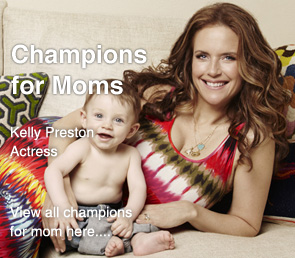
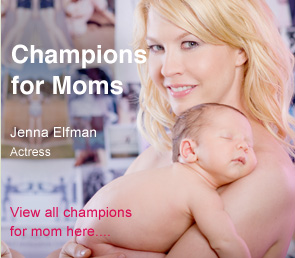

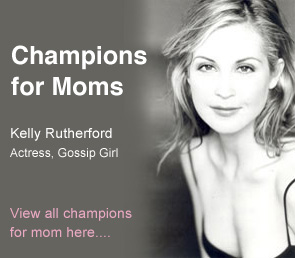
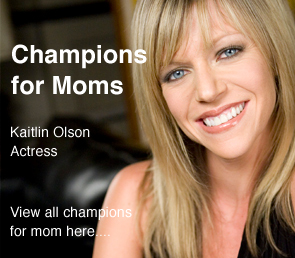
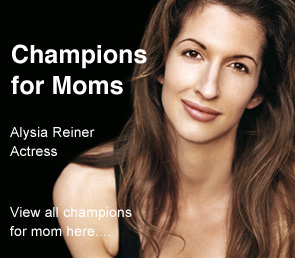
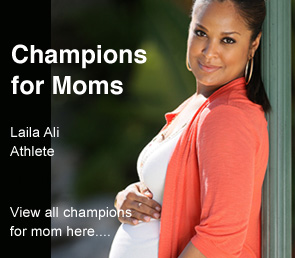
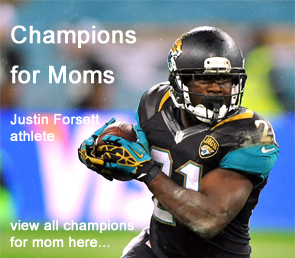
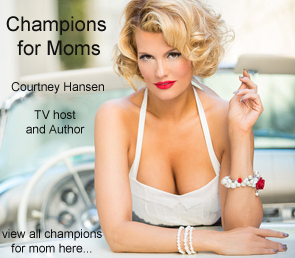
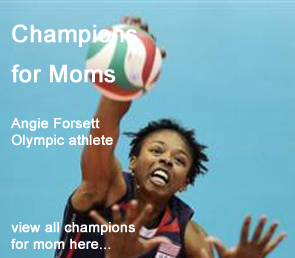
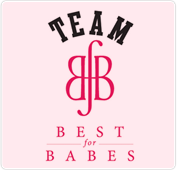

Lol. I don’t remember breastfeeding ever being mentioned, but they did give me an entire can of formula (hidden in a planner so you couldn’t tell the contents when they handed you your goodie bag of propaganda & formula!)
I don’t think they got the memo.
Uh, no. I did receive a diaperbag with a can of formula, a formula company magnet for my firg and a bunch of pamphlets that talk about breastfeeding & formula feeding as if they are interchangable. Never had a single word said about breastfeeding…
I would also add that they would not tell you to stop nursing once you become pregnant again. I have several friends who became pregnant while nursing their infant and had their OB tell them to switch to formula. It can be done and all can be healthy-my two youngest are 17 months apart and my second youngest child nursed till she turned one.
I’m with Laura. Mine are also 17 months apart, and I successfully breastfed my oldest until she was 15 months (she weaned herself). Many women were coming to me because their docs were telling them to quit. Ugh.
At my first visit. My OB asked if I was planning on breastfeeding. When I said yes, her response was “excellent! that’s what’s best for the baby!” When i mentioned I breastfed my first son for 18 months she smiled. I’ve never seen any formula literature in the office, and have never been offered samples. I have, however, seen flyers for breastfeeding classes
Love hearing positive experiences!
They always ask if you are breastfeeding but usually its in regards to birth control and whether you can/will take the pill. I never felt that they were pro breastfeeding at my OB office.
Wow - moved across the country and had a new OB from 20 weeks on. She asked me once if I planned to breastfeed. She has signs up about the breastfeeding class, but never mentioned it to me. There are formula samples in the office - well, in a part that is shared with a family practice doc, so I can’t be sure whose they are. The hospital ROUTINELY gives formula to babies without mom’s permission and up until recently didn’t allow rooming in. Now, when I was pregnant with my second, I was still nursing my first. My OB was my biggest supporter when another doc told me I had to stop because I was killing my baby. She was pleased that I was able to nurse for 15 months.
I can’t say all of this was followed to a T during my prenatal visits, but I do recall being asked if I would breastfeed, and that my answer (yes!) was recorded. I also remember the doctor saying during my breast exam that I “shouldn’t have any problems breastfeeding.” I have never laid eyes on a formula sample either!
My OB for my first birth only asked if I would breastfeed and say that she supports that. There were no formula samples or brochures in her office, though.
I just had my first prenatal with my CNM for this birth. She asked about my nursing experience with my first baby, which was not great (partly due to me being ill). She assured me that we’ll do everything we can to make sure this next time is different. For one thing, she will put the baby immediately to my breast which will help promote breastfeeding success and also help me avoid another PPH. My first baby was put on my chest but not latched right away. I appreciate that my CNM for this birth wants my second baby to actually suckle as soon as possible. I’m sure she will be talking with me about breastfeeding at my future visits, as well.
I exclusively breastfed for more than 4 years of my life, and am a huge proponent of breastfeeding. However, I’m a little concerned about the emphasis on the importance of NOT being given formula. Are breastfeeding new moms so fragile and weak in their decision that the exposure to formula will sabotage their efforts? Really?
I have to come in defense of OBs. I had a wonderful male doctor, who very much came from a medical outlook. We talked about my breastfeeding, and at every point, specially post-partum, he made sure I was informed if anything I was taking medication wise could affect my milk production or the baby’s safety. No formula samples.
I was able to breastfeed within an hour of birth (even with the emergency c-section), and roomed with my baby for the entire hospital stay. All the nurses at the hospital were incredibly helpful and supportive of breastfeeding, and helped with any latching issues. In fact, I wanted to get formula samples for emergencies but NO ONE (not my OB, not the hospital, not my pediatrician) ever offered me one.
I know every experience is different, but I just wanted to come in support of OBGYNs and hospitals, it’s possible to have a very positive breastfeeding experience there.
So glad you shared your positive experience, and it’s encouraging to hear that your hospital and OB were so supportive. Wonderful!